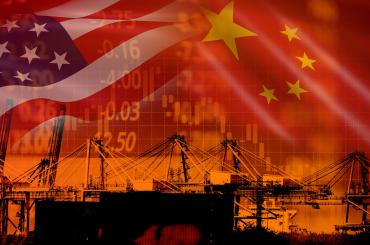

Pinelopi (Penny) Koujianou Goldberg is the Elihu Professor of Economics and Global Affairs and an Affiliate of the Economic Growth Center at Yale University. From 2018 to 2020, she was the Chief Economist of the World Bank Group. Goldberg has served as President of the Econometric Society, Vice-President of the American Economic Association, and Editor-in-Chief of the American Economic Review. She is member of the National Academy of Sciences and the American Academy of Arts and Sciences, recipient of Guggenheim Memorial Foundation and Sloan Research Fellowships, and recipient of the Bodossaki Prize in Social Sciences. She is also a Distinguished Fellow of the Centre for Economic Policy Research (CEPR), research associate at the National Bureau of Economics Research (NBER), research fellow at the Institute for Fiscal Studies (IFS) in London, UK, and member of the board of directors of the Bureau of Research and Economic Analysis of Development (BREAD).
Goldberg is an applied microeconomist drawn to policy-relevant questions in trade and development. She has exploited a broad set of methodological approaches – ranging from estimation of structural industry equilibrium models to reduced form techniques – to study the determinants and effects of trade policies, trade and inequality, intellectual property rights protection in developing countries, exchange rate passthrough, pricing to market, and international price discrimination.
Her most recent research examines the resurgence of protectionism in the U.S.; trade, poverty and inequality; the interplay between informality and trade liberalization in the presence of labor market frictions; discrimination against women in developing countries; and industrial policy in the semiconductor sector.
Recent work by Pinelopi Goldberg
-

Unlocking the economic potential of female entrepreneurship
Closing the gender gap in entrepreneurship is not just a social equity issue—it is a powerful lever for economic growth. Evidence from India shows that women hire more women, and so efforts to boost female entrepreneurship will increase female labour...
Published 21.11.24
-

Pathways to development in a less integrated world
What is the pathway to development in a world marked by rising economic nationalism and less international integration?
Published 15.05.24
-

Informality and the effects of trade in developing countries
What are the effects of trade amidst a large informal sector? New research studies a model tightly connected to data on firms and workers in Brazil
Published 05.03.21
-

Development in an era of deglobalisation
In an era of deglobalisation, developing countries need more equality within their borders
Published 10.08.20
-

The return to protectionism
The aggregate annual loss to US consumers from higher import prices as a result of the trade war with China could be as much as $68.8 billion
Published 02.12.19
-

The future of the World Bank: Why knowledge is power
The World Bank is making a shift from a lending function to a knowledge function. This will amplify the role of researchers in its work.
Published 11.09.19
-

The changing face of development: Backlash against globalisation
It is crucial to understand the causes of the rising anti-globalisation sentiment and make changes in developing countries.
Published 25.06.19
-

The future of development
How can policymakers adapt to a changing world of development and an uncertain future?
Published 10.04.19
-

Integrated and unequal? The effects of trade on inequality in developing countries
Does trade increase inequality? The answer is nuanced and context-specific, but the solution for policymakers is not protectionism.
Published 30.04.18